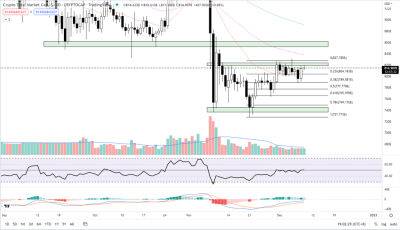Treasury officials would have done more for national security by leaving Tornado Cash alone
One of the most powerful moments in a new crypto user’s journey happens the first time they send a sizable amount of money to their private wallet. It’s an awe-inspiring, serious moment — and it’s a little scary to experience the power and personal responsibility of the technology firsthand with your own real money.
A second powerful moment occurs when the same user is introduced to a block explorer, looks up their address and sees that same transaction there on the blockchain for all to see.
There are competing visions of what Bitcoin (BTC), Ether (ETH) and other cryptocurrencies will achieve. They may be the future of gold, payments, currency or bank accounts. But no matter your crypto vision, none can work without achieving the same level of privacy enjoyed by cash or, at a minimum, credit cards. While credit card companies conduct unparalleled surveillance on our financial life, at least our transactions are not viewable on a public ledger.
There are a number of tools to achieve privacy available in crypto, from privacy coins to mixers and conjoining transactions on the Bitcoin blockchain. These tools are used by everyday users, and in some cases, they are used by bad actors — just like cash. Or to be more precise, crypto and crypto privacy tools are used by criminals with less frequency than cash.
Crypto is safer than fiat.Chainalysis: Transactions involving illicit addresses represented just 0.15% of cryptocurrency transaction volume in 2021.United Nations: estimated money laundered globally in one year is 2-5% of global GDP, or $800B - $2 trillion in USD.Sources
The United States Treasury Department’s Office of Foreign Assets Control sanctioned one particular project, Tornado Cash, that was the most effective privacy
Read more on cointelegraph.com



















